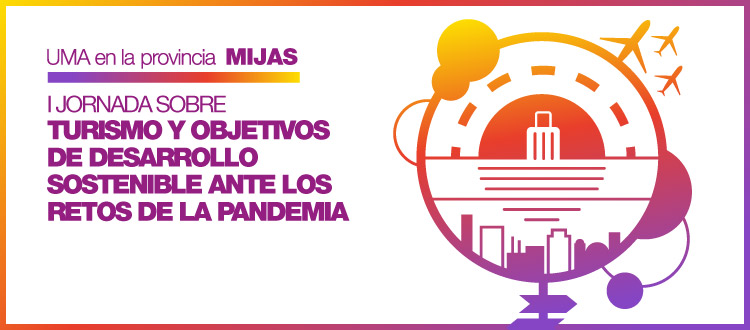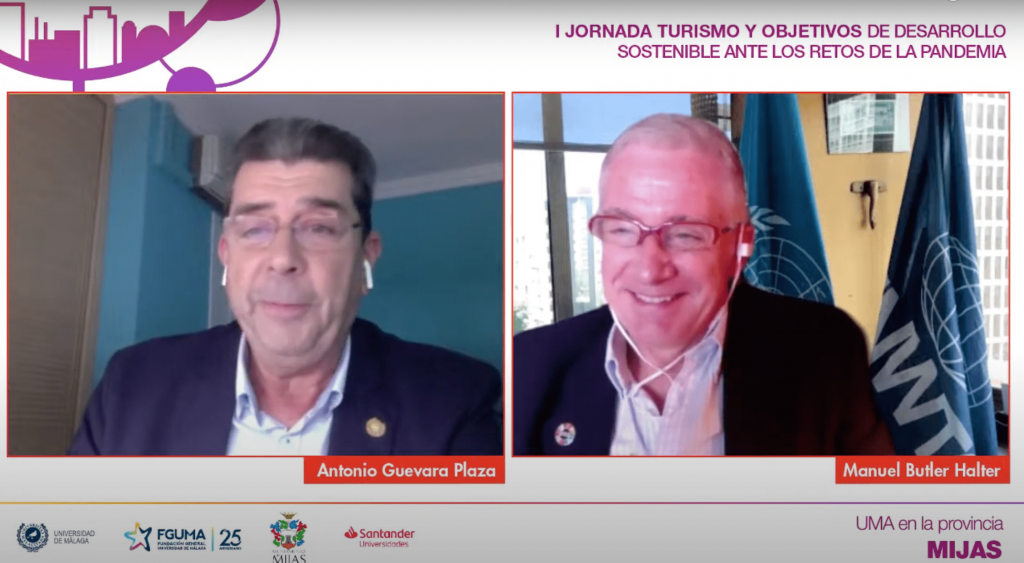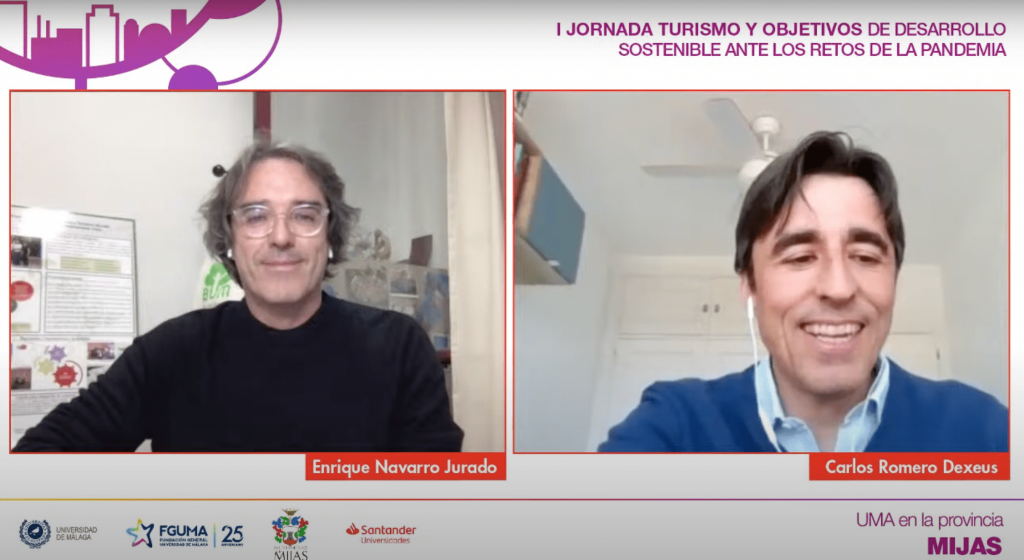
On April 29, the 1st Conference on Tourism and Sustainable Development Goals in the face of the Challenges of the Pandemic was held, which aimed to cover the SDGs, the digital transition and the new challenges of tourism. Undoubtedly, tourism had established itself as a very powerful industry that was growing and generating a driving effect throughout society and the pandemic has shown that we are not prepared for a challenge of this caliber, as many weaknesses have been revealed . Therefore, practical solutions are required that were intended to be discussed on this occasion.
There have been two conferences and later a round table. In the first block of the program, there was Antonio Guevara, the Dean of the Faculty of Tourism and Coordinator of the Manuel Molina Cathedra of Tourism Innovation, moderating the presentation of the Executive Director of the UNWTO - Manuel Butler Halter; besides, there was a presentation held by Carlos Romero Dexeus - Director of Research, Development and Innovation at SEGITTUR, moderating the presentation Enrique Navarro Jurado, the Director of the UMA's Institute for Tourism Intelligence Research and Innovation.
Firstof all, according to UNWTO Executive Director Manuel Butler Halter, it is important to have a vision of the tourism industry on a broad scale, dealing with the impacts generated by tourism activity at the global level and not only at the European or national level. In this sense, the tourism crisis has hit many countries, but especially those whose economic prosperity and the labor market heavily depend on tourism, such as developing countries, underdeveloped countries, many islands, etc.
In addition, it must be taken into account that the pandemic produced poses a threat to the contribution of tourism to sustainable development, nature conservation, heritage, equality and inclusion. Likewise, the social factor will be key when it comes to recovering the sector, emphasizing that, in this new era for the tourism industry, policies must be based on the two “Ps”: people and planet.

Likewise, he insists that, despite the fact that it has already been spoken on several occasions, the lack of coordination and establishment of common criteria among the different countries to articulate tourist movements with safety, trust and efficiency is still noted. However, it has been possible to observe a very significant support from governments to the tourism sector, which must be used to build a sustainable, resilient and more inclusive tourism - which is the great challenge of the decade that we started and in this century in general.
Also, Butler affirms, that the decisions that are made now and in the next 2 or 3 years, will have consequences in the next decades. “We are living through historical, critical moments - the current crisis is an opportunity to transform the relationship of tourism with the climate, nature and the economy. Furthermore, the current crisis has accelerated digital transformation, opening up new opportunities for competitiveness and sustainability. Innovation, training and digital transformation are the key elements to advance in this new tourism model. " - he adds.
Secondly, Carlos Romero Dexeus assures that we have to learn to network more efficiently, bringing together different perspectives of the same reality, since realities are transformed and different approaches and ways must be sought in order to get comprised.

In addition, it is time to review the challenges to see which are still current and which are obsolete. “We are in a decade of the SDGs and of European reconstruction. The SDGs could be the first step to reshape the Spanish tourism strategy and lead the reconstruction of tourism worldwide. " - indicates Romero.
Desde SEGITTUR opinan que la recuperación turística no consistirá en retornar al punto donde se encontraba el turismo antes de la pandemia, centrándose en la capacidad de generar la riqueza, sino que el turismo pos-COVID debe convertirse en sostenible y pasar de una producción lineal a un modelo circular en consonancia con los objetivos de la Agenda 2030.
The full conference can be seen through the following link: https://www.youtube.com/watch?v=bNbliXO_WAo

